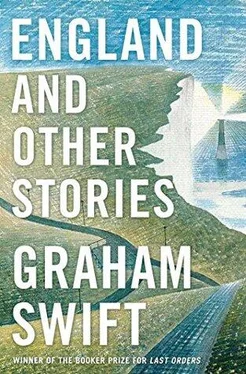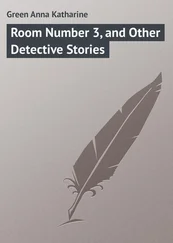Well, I’m a lucky girl. Most widows get a few flowers, I get five parks.
Roy never had blue eyes or golden hair or wore white robes, like some bloody angel. He died in one of those hospital nightie things, all peek-a-boo up the back. He had brown eyes and black hair, most of which had gone anyway. His little brother went before him. So did Nelson Mandela. And now he’s gone too, Hettie, he’s gone too, like his hair.
WHEN I WAS a small boy we had a neighbour called Mr Wilkinson, who was a weirdo. He must be long gone now, but I’ve often wondered what became of him. I was his undoing.
Let me stress that I never thought he was a weirdo, it wasn’t my word. It was an opinion I was made to have of him. I was too young to have opinions of my own, or so it was thought. I was just a small boy going to primary school. But I didn’t think Mr Wilkinson was weird. I thought he was interesting, I even admired him. I was driven into taking an opposite view.
When I was with my mother and we met him in the street he’d always be well mannered. He’d doff his hat. He’d always wear a hat and be well dressed, often in a suit, even if the suit had seen better days. He’d ask courteously after my father—‘Mr Simmonds’—and he used words with a feeling for them, as if they were things you should treat appreciatively, not just mechanically, employing standard phrases. Maybe it was his enthusiastic use of language that first made my parents think he was weird.
He looked entirely respectable. The dearest wish of all the grown-ups in our street was to be respectable and, by being respectable, to better themselves. So you’d think they might have regarded Mr Wilkinson as a model. It was obvious even to me that he was in some ways a cut above our street, he’d come down in the world to it. It was also obvious that he was what people called ‘educated’.
I’d had it drummed into me by my parents from the earliest age that education was the most important thing in life and the key to everything, and I believed them. ‘Education’ was one of the first long words I learnt, and learning it was — rather magically — an example of the thing it proclaimed. At school I had no problem with teachers. I revered them. They were the purveyors of this most important thing. It struck me that Mr Wilkinson had the qualities of a teacher and perhaps had been one once. He seemed, in fact, even more educated than any of the teachers at my primary school, and for this reason too I couldn’t see why the whole street didn’t look up to him, instead of thinking he was weird.
But Mr Wilkinson lived alone. That was one mark against him. And though he’d always be respectably dressed when you met him in the street, he was in the habit of engaging in physical exercises in his back garden in just his underpants. In all weathers, even in mid-January. Just his underpants.
It wasn’t only exercising. There seemed to be a whole ritual medley of things that sometimes involved simply breathing — a vigorous expanding and deflating of his lungs — and sometimes involved not doing anything in particular except chanting. Chanting was the best word for it. You might sometimes have called it humming or even singing, but chanting was the word that got used. In his underpants.
Anyone can do what they like in the privacy of their own home. This was something my parents would have firmly and fairly asserted. But they also said, about many things, that there were limits.
Our street was like thousands of others built in the outer suburbs on vacant land just after the war, but for some reason it had been decided to erect a pair of semis, then a bungalow, then another pair of semis and so on. If you had a bungalow you only had the one floor, but you had the privilege of being detached. There wasn’t a great deal of space, but you could walk all the way round your own home. Even in your underpants.
On the other side of us, in the adjoining semi, were the Hislops. They’d been there, as had my parents, since the houses were built, but were a slightly older generation. Their two boys — I never thought of them as ‘boys’—were old enough for one of them to have done National Service. I remember him in a beret, with an unexpected moustache and a kit bag. Their father ran a small printer’s. The boys had girlfriends, tinkered around with cars and got married. There was nothing particularly educated about the Hislops, they were even slightly rough-edged, but they were a family and normal.
On the other side was Mr Wilkinson.
There was a high wooden fence, with a bit of trellis on top, between ourselves and Mr Wilkinson, so the only way you could see him in his underpants was from our spare bedroom or my parents’ bedroom, both at the back upstairs. This put us in the position of spies, while all Mr Wilkinson was doing was — minding his own business. Nonetheless, my parents and particularly my mother didn’t want to live next door to someone who was even known to stand around in his underpants and chant. And you could hear the chanting sometimes without needing to look.
Mr Wilkinson, I should say, was quite old. By that I mean that he seemed old to me. He must have been in his fifties. He had thinning, whitish hair, but had none of the stoopingness or vulnerability of old people. He was well built, even quite muscular (as could be seen) and, plainly, he kept himself fit. He was a good advert for physical education too.
I only remember him as ‘Mr Wilkinson’. I can’t recall ever knowing his first name, perhaps it was considered wrong to know it. Mr Hislop was also Tony. My parents christened me James, and gradually gave up the battle against ‘Jimmy’. When I was first introduced to Mr Wilkinson (before we knew anything of his habits) it was as James, but he immediately and perhaps only in a spirit of friendship called me Jimmy. I saw that this set my mother against him.
Not only was there the fence and the trellis, but because the street was on a hill and Mr Wilkinson was above us, it was virtually impossible at ground level to see the back of his bungalow or into his garden. In the months when the trellis wasn’t overgrown you might just glimpse his white-haired but imposing head moving past, or even a pale pink shoulder. Which could make you wonder if he was wearing underpants this time or nothing at all.
On warm days I used to like playing by the flower bed at the foot of the fence, near the back of the house. Playing really meant re-landscaping the flower bed according to my infant purposes, which naturally displeased my parents. But I remained so set upon this activity that they eventually allowed a (strictly limited) part of the bed to be used for it. Perhaps they thought it was good for my development and that I might one day become a civil engineer. In fact, though they didn’t know it, I was rearranging, in miniature, our street. I was in charge of every household in it.
Imagine a region of pebble-dashing and occasional bursts of mock-Tudor, of rowans, laburnums, trim hedges, trim lawns and clumps of purple aubrietia. You have the picture. I think of it now with an odd fondness, but with an abiding, far-off sense of its own weirdness.
One day, engaged in my flower-bed projects, I caught Mr Wilkinson watching me intently through the trellis and the tendrils of clematis. He must have been doing it for some time before I looked up, but, if I was surprised, I wasn’t frightened. He wasn’t spying on me (as we spied on him) so much as waiting to speak to me.
He asked me if I was interested in agriculture and if I was a vegetarian.
These were two long words I didn’t know — I found them even difficult to remember — and I must have disappointed Mr Wilkinson with my answer. But he seemed eager that I should be a vegetarian. I told my parents (I was at heart a truthful, conscientious boy) and I must have repeated the words accurately enough. They said agriculture was farming and vegetarians were people who didn’t eat meat.
Читать дальше












